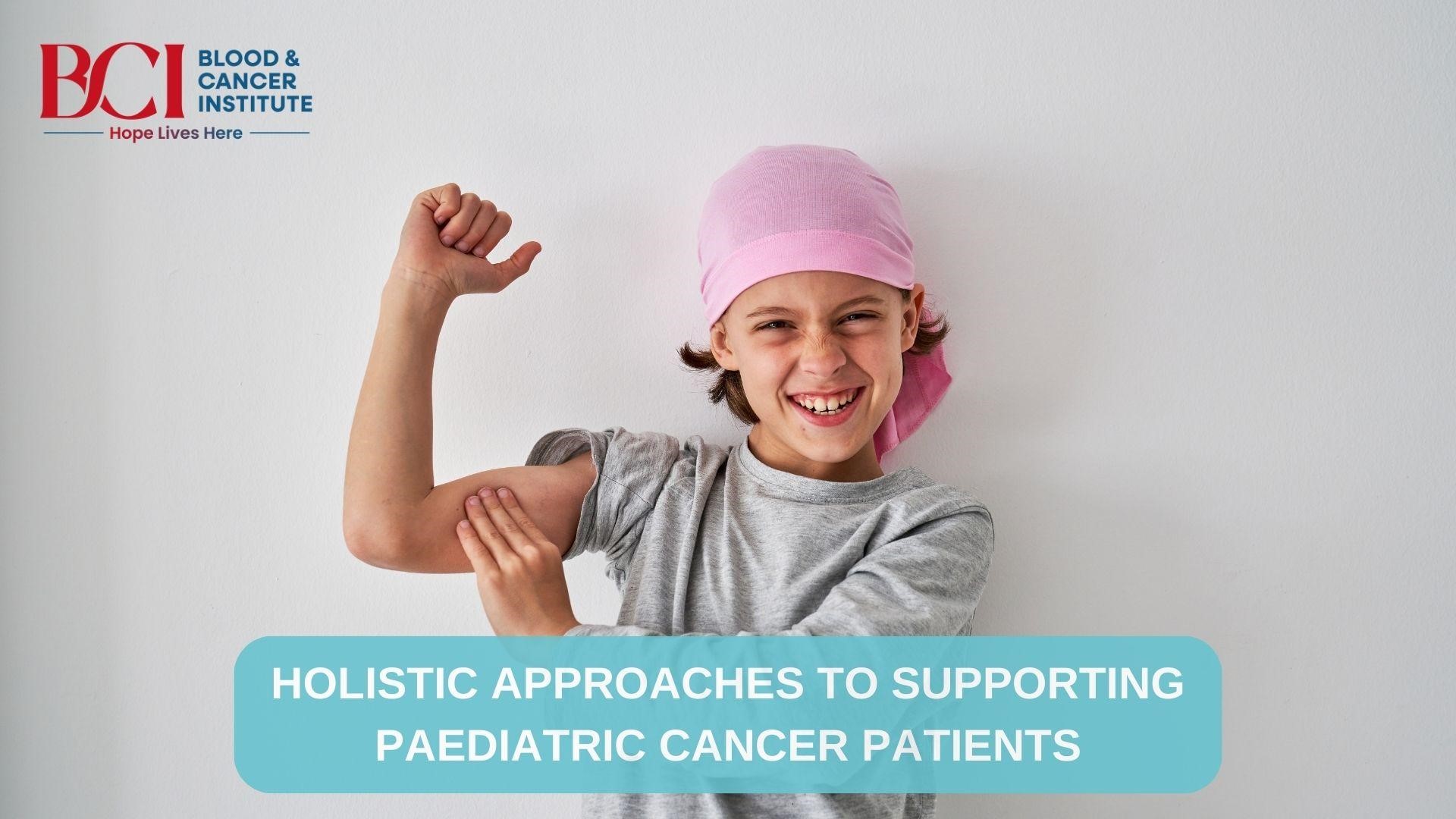
- By : BCI
- General
- Comments: 0
Holistic Approaches to Supporting Paediatric Cancer Patients
When a child receives a cancer diagnosis, it impacts every aspect of their life and the lives of their family members. “While traditional medical treatments like chemotherapy, radiation, and surgery play a crucial role in fighting the disease, a holistic approach can significantly improve a child’s overall well-being and quality of life during this challenging time”, shared our paediatric cancer specialists in Surat at BCI- Blood and Cancer Institute. This blog post explores various holistic strategies to support paediatric cancer patients, addressing their physical, emotional, and social needs.
Nutrition and Diet
A balanced, nutrient-rich diet is essential for supporting a child’s body during cancer treatment. Many paediatric cancer patients experience changes in appetite, taste, and digestion. Working with a paediatric nutritionist can help ensure the child receives adequate nutrition to support their immune system and aid in recovery. Some strategies include:
- Offering smaller, frequent meals to combat nausea and reduced appetite
- Incorporating nutrient-dense foods like fruits, vegetables, and lean p- Addressing specific dietary needs based on the type of cancer and treatment
Mind-Body Techniques
Stress and anxiety are common among paediatric cancer patients. Mind-body techniques can help children manage these emotions and cope with pain or discomfort. Cancer specialists in Surat, at BCI- Blood and Cancer Institute, offer some effective approaches:
- Guided imagery and visualization exercises
- Age-appropriate meditation and mindfulness practices
- Deep breathing exercises
- Progressive muscle relaxation
These techniques can be taught by child life specialists, psychologists, or trained nurses, and can be practiced at home with family support.
Physical Activity and Exercise
While it may seem counterintuitive, appropriate physical activity can benefit paediatric cancer patients. Exercise, tailored to the child’s abilities and energy levels, can:
- Improve mood and reduce fatigue
- Maintain muscle strength and flexibility
- Enhance cardiovascular health
- Promote better sleep
Creative Arts Therapies
Engaging in creative activities can provide emotional outlets and boost self-expression for paediatric cancer patients. Art therapy, music therapy, and dance/movement therapy offer numerous benefits:
- Reducing anxiety and depression
- Improving communication skills
- Enhancing self-esteem
- Providing distraction from pain or discomfort
Many hospitals now offer these therapies as part of their paediatric oncology programs.
Social and Emotional Support
Cancer treatment can be isolating for children, separating them from their normal routines and peer groups. Addressing their social and emotional needs is crucial:
- Encourage regular interaction with friends and classmates, either in person or virtually
- Arrange for hospital tutoring to maintain academic progress
- Connect families with support groups for paediatric cancer patients and their siblings
- Utilize child life specialists to help children understand their diagnosis and treatment in age-appropriate ways
Family-Centric Care
A child’s cancer diagnosis affects the entire family. A holistic approach should include support for parents, siblings, and other family members:
- Provide education and resources to help family members understand the diagnosis and treatment
- Offer counselling services for parents and siblings
- Encourage open communication within the family
- Connect families with financial and logistical support services
Environmental Considerations
Creating a healing environment can positively impact a child’s treatment experience:
- Personalize the hospital room with favourite toys, photos, or decorations
- Ensure access to natural light and fresh air when possible
- Minimize noise and disruptions during rest periods
- Incorporate nature elements through indoor plants or nature-themed decor
Integrative Medicine Programs
Many paediatric hospitals now offer integrative medicine programs as part of cancer treatment in Surat that combine conventional treatments with evidence-based complementary therapies. These programs take a whole-child approach, addressing physical symptoms alongside emotional and spiritual well-being.
Conclusion
A holistic approach to supporting paediatric cancer patients recognizes that healing involves more than just treating the disease. By addressing the physical, emotional, and social needs of the child and their family, we can improve overall outcomes and quality of life during this challenging journey. While conventional medical treatments remain the cornerstone of paediatric cancer care, these holistic strategies can play a vital role in supporting the child’s overall well-being and resilience.
As research in this field continues to grow, more healthcare providers are recognizing the value of integrating holistic approaches into standard paediatric oncology care. By embracing a comprehensive, patient-centric model, we can better support children and families facing the challenges of paediatric cancer.
